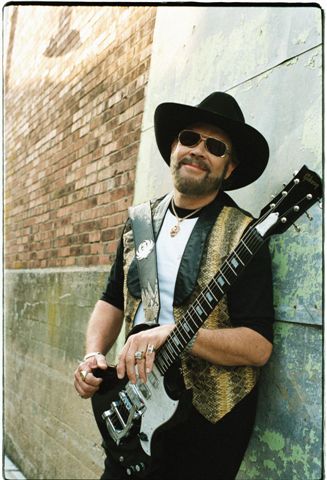|
|
Biography |
|
Biography In the music industry, there are very few artists who surpass superstar status to become true American icons. Hank Williams Jr. is a founding member of that elite club. Throughout his career, he’s helped shape our country’s cultural landscape with his unbridled creativity, from the gut honesty and unwavering personal convictions. His music not only reflects his own life, but the common experiences that unite us. Hank Jr. has long been the voice of the common man, serving up observations on life and society that have made his fans listen intently and respond with a rousing “Hell Yeah!” as he puts words and music to their thoughts, hopes and everyday life. He does that again on his latest album with the song, “Stirring It Up.” In his inimitable brash style he takes tabloid talk show hosts to task for their emotional muckraking and challenges anyone “who ain’t sure about me to take it up with Gretchen, Tim, the Rock and Sean Hannity.” His music has long been a barometer reflecting both our nation’s challenges and the resilience of the human spirit in such anthems as “A Country Boy Can Survive.” And he managed to perfectly capture the country’s sense of fun and competitive drive every Monday night as he looked into the cameras before ABC’s Monday Night Football and roared “Are You ready for Some Football?” Those words not only won him a legion of new fans during the last decade, they also earned Williams the distinction of being the first country artist to ever to win an Emmy, a feat he repeated 1990 through 1993. Randall Hank was born May 26, 1949, one month before his legendary father made his landmark first appearance on the Grand Ole Opry. His father nicknamed him “Bocephus” after the ventriloquist dummy used by country comedian Rod Brasfield. He was only three when his father died in 1952. Eight years later his mother was coaxing him on stage to sing his daddy’s songs, urging him to continue the legacy. He made his debut on the Opry at 11 and by the time he was 14 was in the studio recording his debut album. His rendition of “Long Gone Lonesome Blues” became a hit and all eyes were on the artist, constantly looking for shades of his father’s genius. It was a complex emotional vortex in which the young man was forced to develop, but he did so head on and on his own terms. Who can forget the mournful honesty in that young voice when he crooned "It’s hard standing in the shadow of a very famous man?” That song displayed the honesty, integrity and strength mixed with vulnerability that would become cornerstones of Williams’ artistry. What followed in the years since has been a whirlwind ride during which the younger Williams successfully emerged from his famous father’s shadow, forging a career of his own. He managed to create music that resonated with the same gut-wrenching emotion that marked his father’s best work, yet beyond that he left little room for comparison as he blazed a trail with such classic hits as “Whiskey Bent and Hell Bound,” “All My Rowdy Friends,” “Old Habits” and “Born to Boogie.” Those familiar with Hank Jr.’s legend know it hasn’t been an easy road. Every life and career has its peaks and valleys, but Williams has had more than his share. When he sings “A Country Boy Can Survive,” there’s an authority in his voice, because he’s done just that. He literally fell from a mountain top, yet lived to tell the tale. He’s battled his own demons and now on the other side of 50, it’s obvious he has been the victor. He faces life head on and even when it hurts, he keeps up the fight. In 2005, he lost his best friend, Merle Kilgore, who had been a second father to him. During a recent show at the Country Music Hall of Fame during the annual Country Radio Seminar, Williams mesmerized the industry crowd with his legendary hits, witty stage banter, and unparalled stage presence. Alone with his guitar, then later moving over the piano to share some reminiscences as well as his boogie moves, Williams defined star power for the bounty of artists in the audience who had cut their teeth on his music and legend. Rhett Akins, Tracy Byrd, Mark Wills, Kix Brooks, and Collin Raye were among those there to pay homage to Bocephus. He served up a potent arsenal of hit songs and in a moment that will likely become Music Row folklore, he offered up some personal observation on life. He spoke of losing his friend Merle and talked about the healing powers of time. Somehow one got the impression that enough time, a good shot of whiskey and a little bit of faith could just about cure anything. Hank’s been there. He knows, and he’s taken us all along for the ride.
|
|
